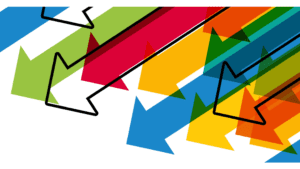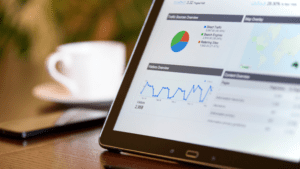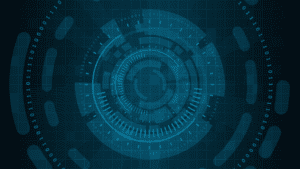Software-as-a-Service (SaaS) companies provide cloud-based applications that power modern businesses, from financial platforms to collaboration tools to customer relationship management (CRM) systems. Because SaaS applications handle vast amounts of sensitive user data, integrate with multiple third-party services, and run in always-on environments, they are prime targets for cyber threats. Ensuring strong application security is critical to maintaining trust, achieving compliance, and preventing costly breaches.
In this blog, we’ll explore the unique security challenges faced by SaaS companies, the importance of application security as part of a broader software security strategy, and how SOOS helps SaaS organizations protect their applications, users, and business.
The Security Expectations of SaaS Customers
SaaS customers rely on these platforms to handle everything from customer data to business-critical operations. Given the nature of cloud-based services, customers have high expectations for the security of their data. In a McKinsey survey that’s now 5 years old, more than 60% of businesses expected their SaaS vendors to provide tools that comply with the highest standards of cybersecurity. These expectations include:
- Data Protection and Privacy: One of the foremost concerns customers have is ensuring that sensitive data is protected. For many SaaS businesses, this means managing personal data, financial records, intellectual property, and even medical or health-related information. Failure to protect this data can result in financial loss, reputation damage, and legal consequences. A breach of customer data not only undermines trust but can lead to severe penalties under regulations like the GDPR or HIPAA.
- Regulatory Compliance: SaaS companies must comply with various regulatory frameworks to maintain trust and avoid penalties. For example, PCI DSS compliance is required for SaaS providers handling payment processing, while SOC 2 Type II reports are essential for companies offering cloud services. Failure to demonstrate regulatory compliance can undermine customer confidence and lead to loss of business.
- Uptime and Availability: Clients expect SaaS providers to guarantee uptime and ensure business continuity. Availability is as crucial as security. A 2023 Gartner survey found that 92% of organizations cite uptime and reliability as key factors when choosing a SaaS provider. Security and availability must work in tandem, vulnerabilities or downtime resulting from cyber-attacks can cause significant disruptions.
- Incident Response and Recovery: Given the increasing frequency of cyberattacks, customers expect SaaS providers to have a clear incident response plan in place. This includes having a process for identifying breaches, notifying customers, and recovering data. The ability to act quickly and efficiently in the event of an attack is paramount to maintaining customer trust.
Key Security Certifications for SaaS Companies
SaaS companies must not only meet customer expectations but also adhere to various industry standards and certifications that validate their security posture, or how they’re handling software security. These certifications demonstrate that the company has taken the necessary steps to protect data and ensure software security. Some of the most important certifications for SaaS companies include:
- SOC 2 Compliance: SOC 2 (System and Organization Controls) is a crucial certification for SaaS providers, especially those offering cloud-based services. It assesses how a company handles customer data, focusing on five key trust service principles: security, availability, processing integrity, confidentiality, and privacy. Achieving SOC 2 compliance reassures customers that their data is being managed securely. According to AICPA, SOC 2 compliance is critical for any SaaS company offering services to customers in the U.S.
- ISO 27001: The ISO 27001 certification is an international standard that focuses on information security management systems (ISMS). It provides a framework for managing sensitive company and customer data, ensuring that companies have the necessary processes in place to protect data from breaches and theft. ISO 27001 helps SaaS companies demonstrate their commitment to security best practices and risk management.
- PCI DSS: For SaaS companies handling payment information, PCI DSS (Payment Card Industry Data Security Standard) compliance is essential. It ensures that companies meet security standards for storing, processing, and transmitting cardholder data, reducing the risk of data breaches and fraud.
- GDPR Compliance: For SaaS companies handling personal data of EU citizens, GDPR (General Data Protection Regulation) compliance is mandatory. The regulation requires SaaS providers to secure personal data and allow customers to control their data preferences. Non-compliance can lead to severe fines, making adherence to GDPR a critical part of SaaS security.
Application Security is Essential for SaaS Software Security
While certifications and regulatory compliance are important, application security is at the core of a SaaS provider’s efforts to ensure the security of their software. Here’s how application security integrates into overall SaaS security processes:
- Secure Software Development Lifecycle (SDLC): A secure SDLC ensures that security is integrated throughout the development process. This includes adopting secure coding practices, using automated security tools to identify vulnerabilities in the code, and performing regular security audits during the development lifecycle.
- Vulnerability Management: SaaS companies must continuously identify and patch vulnerabilities in their software. This includes leveraging tools like Static Application Security Testing (SAST), Dynamic Application Security Testing (DAST), and Software Composition Analysis (SCA) to scan for security flaws in both proprietary code and third-party software libraries.
- Third-Party Risk Management: Many SaaS products rely on third-party libraries and open-source code. It’s essential to regularly assess the security of these dependencies and track any known vulnerabilities. This can be done using SCA tools to ensure that open-source libraries don’t introduce security risks into the application.
- Real-Time Threat Detection and Monitoring: Continuous monitoring of software and user activity is essential for detecting and mitigating cyber threats in real time. This allows SaaS companies to respond quickly to security incidents, such as SQL injections, cross-site scripting (XSS) attacks, and denial-of-service (DoS) attacks, before they can compromise the application.
How SOOS Helps SaaS Companies Overcome Security Challenges
SOOS is a comprehensive and easy-to-use application security platform designed to help SaaS companies address the most pressing security challenges while maintaining new product development focus. SOOS helps SaaS providers secure their software and meet customer expectations in a centralized, pipeline-integrated platform that includes:
- Automated Vulnerability Scanning: SOOS automates the identification of vulnerabilities in both proprietary code and open-source components. By integrating SOOS into the development lifecycle, SaaS companies can continuously scan for vulnerabilities and address them before they become security risks.
- Software Composition Analysis (SCA): SOOS provides in-depth SCA tools to track and manage third-party dependencies. This is especially important for SaaS companies, as many applications rely heavily on open-source libraries. SOOS ensures that all components meet security standards and that any known vulnerabilities are identified and resolved promptly.
- Continuous Monitoring and Real-Time Threat Detection: SOOS enables real-time monitoring of security risks, ensuring that SaaS companies can detect threats and vulnerabilities as they arise. Continuous monitoring helps identify attacks early, minimizing potential damage and ensuring compliance with regulatory requirements.
- Compliance Support: SOOS helps SaaS companies stay compliant with SOC 2, ISO 27001, GDPR, and other security frameworks. By providing detailed reports and automated checks, SOOS supports SaaS providers in maintaining the necessary certifications and demonstrating their commitment to security.
An Ideal Application Security Platform for SaaS Companies
SaaS companies face unique security challenges in an increasingly digital world. Customers expect their data to be protected, regulatory compliance to be ensured, and software to remain secure throughout its lifecycle, while also expecting feature development and innovation to continue at a fast pace. Application security plays a central role in meeting these expectations, and tools like SOOS are vital in helping companies manage vulnerabilities, track dependencies, and maintain compliance with industry standards.
By leveraging SOOS, SaaS providers can not only ensure the security of the software they build but also build trust with their customers, improve their security posture, and stay ahead of evolving cyber threats. SOOS is uniquely poised to meet the demands SaaS companies face by offering unlimited scanning, the only deep-tree dependency scanning to catch issues other tools can’t, and integration with developer tools so developers can secure their code from within their current workflows. To learn more about how SOOS can help your SaaS company navigate its security challenges, contact us or try SOOS for free.













